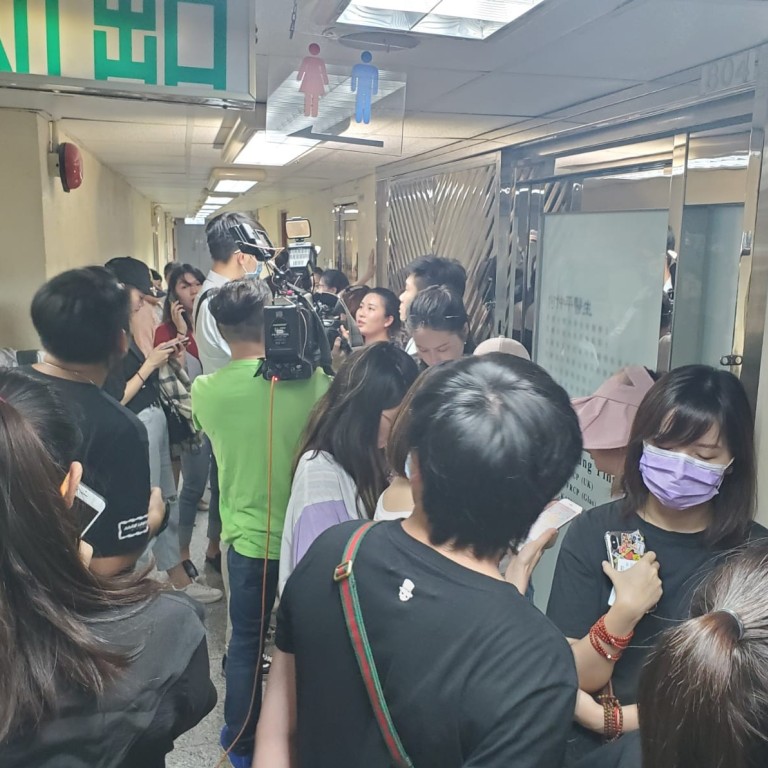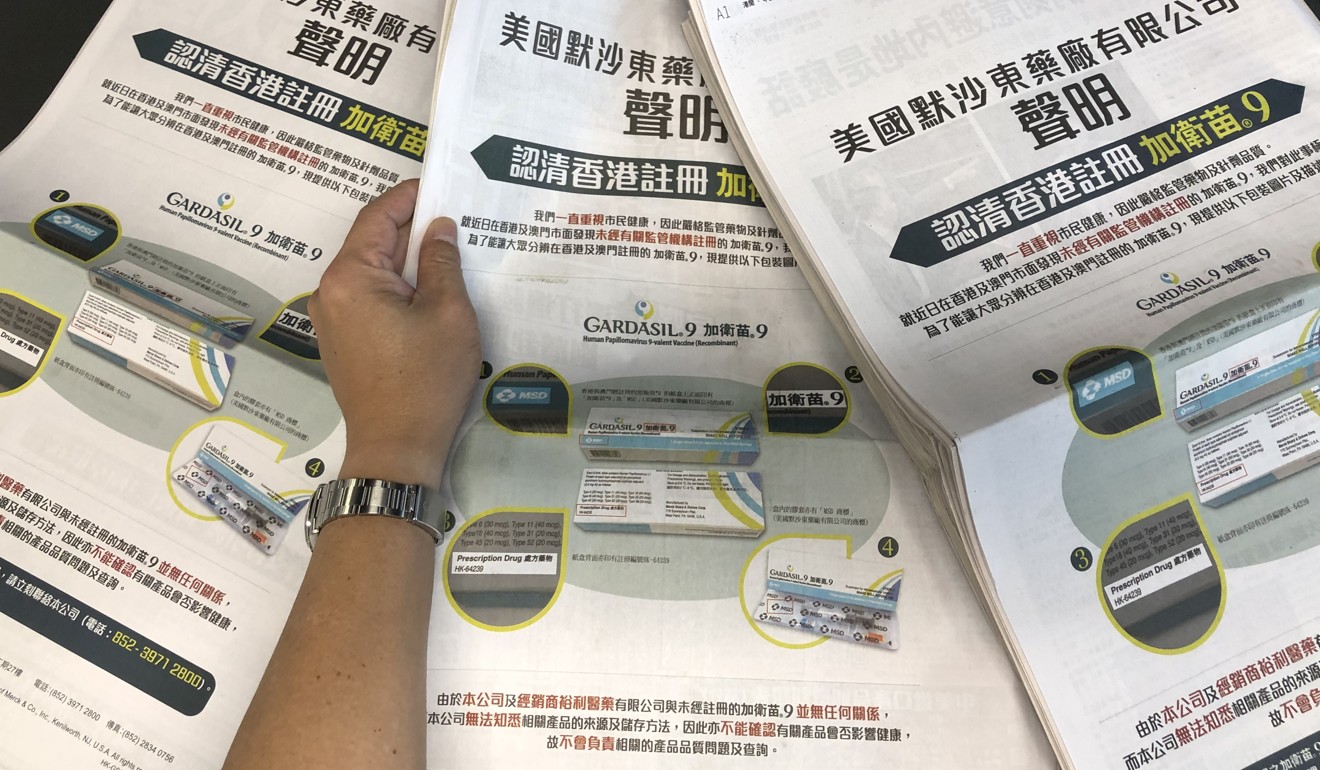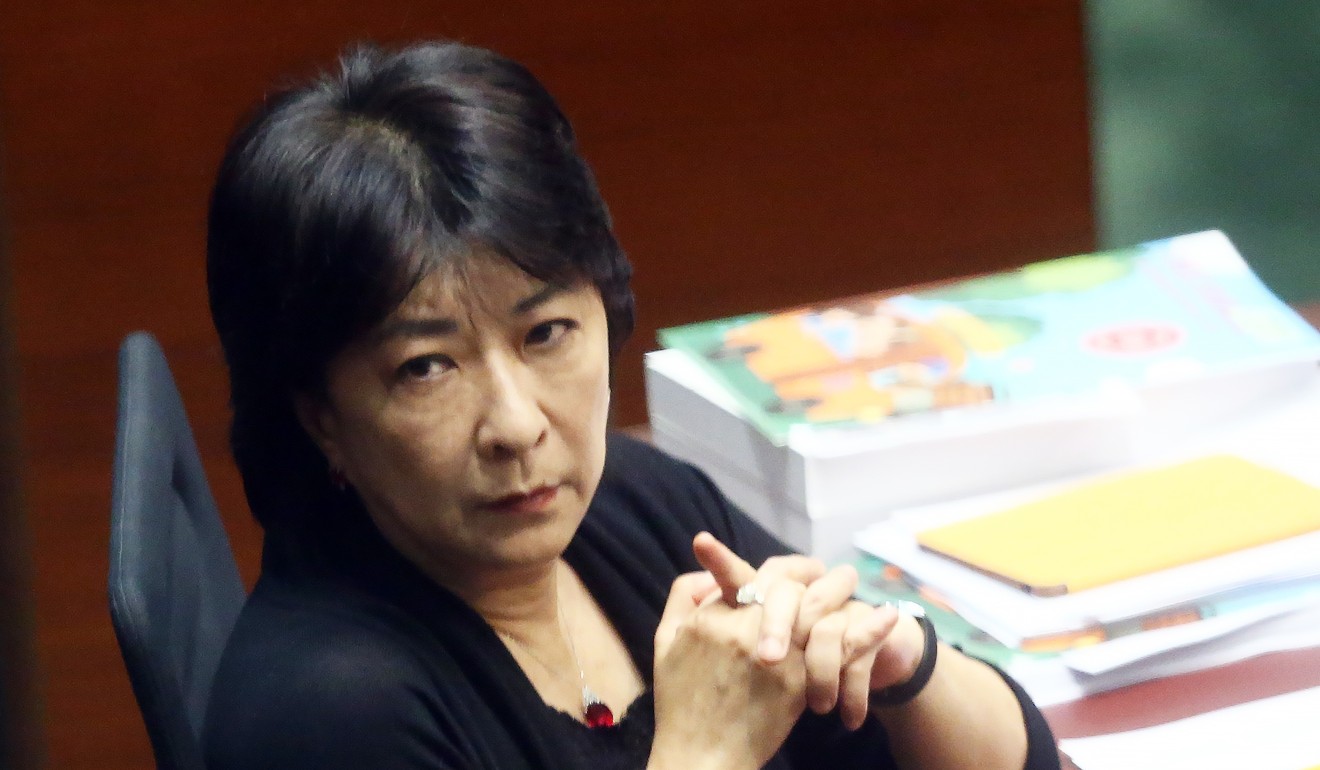
Hong Kong health authorities probe at least one private clinic over fears of smuggled Gardasil 9 HPV vaccines
- Manufacturer MSD urges customers not to use vaccines that do not carry its local registration details on packaging
- Lawmaker Ann Chiang says she has received at least 30 complaints involving seven clinics
Hong Kong’s health department is investigating at least one private clinic over the alleged use of HPV (human papillomavirus) vaccines from unknown sources, after the sole manufacturer denied providing products to it.
The investigation was launched as manufacturer MSD paid for front-page ads in local newspapers on Friday reminding customers not to use “Gardasil 9” vaccines that did not carry its local registration details on the packaging. A lawmaker also reported to the department that she had received roughly 30 complaints about seven clinics.
On Friday afternoon, outside AMH Medical Diagnostic Group’s clinic in Jordan, dozens of mainland Chinese women waited for hours seeking a refund and an explanation about the vaccines, for which they paid up to HK$7,000 (US$897).
Yan Zheng from Guangzhou received three injections at the clinic last month.

“I saw in the news that a clinic in Jordan was named over the vaccines,” Zheng said. “I was worried and came to find out.”
She paid HK$6,500 in cash at the clinic for vaccinations against HPV, and around 650 yuan (US$95) as a deposit to a mainland agent.
“I want to get my money back,” she said. “I also hope they can check the vaccine we have been injected with to see if they are real but smuggled, or fake.”
She said she was worried about the vaccine because after the three jabs, she had a body check and the doctor asked her to have another HPV check, as the result was uncertain. “Before getting the jabs, I had HPV tests twice and they were negative.”
Others at the clinic arrived from provinces such as Henan and Jiangsu for the vaccine, only to learn about the problem.
HPV drug shortage in city prompts protest outside MSD offices
Ms Tian, a teacher in Suzhou, Jiangsu province, got a HK$2,000 refund for her last shot.
“I spent around 4,000 to 5,000 yuan in expenses each time I came for the vaccination including flight tickets and accommodation,” Tian said.
In a statement, AMH said the vaccines it provided, Gardasil 9, were made by MSD, and “transported and stored in an appropriate way”.
It said it had not received complaints from clients about feeling unwell after receiving the injections but would be willing to provide refunds if they had caused any inconvenience. The statement did not say whether its vaccines were registered locally.

The Department of Health said it was investigating cases related to the clinic. It confirmed MSD was the sole provider of the registered product Gardasil 9. MSD is a subsidiary of US drug giant Merck.
Those convicted of possessing and selling unregistered pharmaceutical products face a maximum penalty of two years in prison and a HK$100,000 fine.
Customs said it was checking if anyone had imported a drug without a licence, while it found no breach of the Trade Descriptions Ordinance.
Meanwhile, pro-establishment lawmaker Ann Chiang Lai-wan, who received more than 30 complaint letters from customers, said the cases involved seven private clinics.
Her colleague Elizabeth Quat said one of the complainants had a rash all over her body.
The vaccine packaging did not carry the Gardasil 9 and manufacturer’s logos and the foil wrapping the ampoule did not have the MSD pattern, according to Chiang.
She urged the government to step up law enforcement and to communicate with the mainland authorities on potential controls on the number of visitors coming to the city for vaccination.
“When you have a large number of people flocking here creating excessive demand, it gives rise to smuggled or fake products,” Chiang said.
According to medical experts, Hong Kong’s speedier process for approving foreign medication and its reputation for higher quality health care have led to an influx of mainlanders.
The Post contacted the other six clinics mentioned in the complaints. Cheuk Yin (Home Clinic) Limited declined to comment while the rest did not reply.
Additional reporting by Christy Leung and Danny Mok

